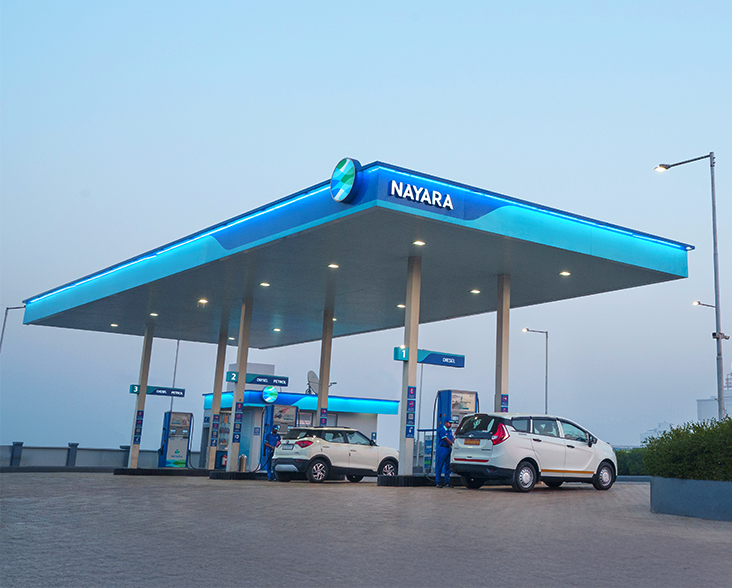Common Mistakes That Can Damage Your Car Engine and How to Avoid Them
Your car engine is the heart of your vehicle, and like any heart, it needs proper care to perform smoothly over the long run. But even the most seasoned drivers sometimes make everyday errors that slowly lead to car engine damage. The truth is, most engine issues are preventable, provided you’re aware of what causes them in the first place. In this blog, we uncover what can damage a car engine, the signs of engine damage, and how small missteps can result in a damaged car engine over time. Whether you’re a new driver or a long-time motorist, understanding these pitfalls will help extend your engine’s life and save you from costly repairs.
Idling Too Long to Warm Up the Engine
Many drivers believe idling the car for several minutes warms up the engine better, especially in colder weather. But modern engines are designed to warm up faster when in motion. Excessive idling leads to fuel residue buildup, which can harm combustion components and lead to long-term damage.
Tip: Drive gently for the first few minutes instead of idling. This reduces wear while allowing the engine to reach optimal temperature naturally.
Ignoring the Cooling System
The cooling system keeps your engine from overheating, yet it’s often overlooked during regular maintenance. Low coolant levels, leaks, or a malfunctioning radiator fan can all lead to engine overheating, which is one of the most severe causes of car engine damage
Tip: Check coolant levels regularly and flush the system as per your vehicle’s manual. If the temperature gauge rises frequently, get the cooling system inspected.
Skipping Regular Maintenance
Neglecting scheduled servicing is one of the most common ways to shorten your engine’s life. During regular maintenance, technicians check vital fluids, belts, hoses, and filters that keep your engine healthy.
Tip: Stick to your vehicle’s maintenance schedule and maintain records of each service. Prevention is always cheaper than engine replacement.
Overusing the Accelerator Aggressively
Hard acceleration not only burns more fuel but also puts unnecessary stress on the engine. Repeated aggressive driving can result in worn-out pistons, cracked cylinder heads, or even engine knock, all of which contribute to common engine problems.
Tip: Maintain steady speeds, especially during city driving. Accelerate gradually and allow the engine to perform without sudden stress.
Neglecting Timely Engine Oil Changes
Engine oil is essential to lubricate the internal moving parts and prevent heat buildup. Skipping oil changes allows dirt and sludge to build up, which leads to overheating and friction, two prime engine damage symptoms. Tip: Follow your manufacturer’s oil change intervals strictly. Use the recommended grade of oil and don’t wait for the oil light to turn on.
Neglecting Timely Engine Oil Changes
Engine oil is essential to lubricate the internal moving parts and prevent heat buildup. Skipping oil changes allows dirt and sludge to build up, which leads to overheating and friction, two prime engine damage symptoms. Tip: Follow your manufacturer’s oil change intervals strictly. Use the recommended grade of oil and don’t wait for the oil light to turn on.
Clogged or Dirty Fuel Injectors
Fuel injectors are responsible for spraying fuel into the engine at the correct angle and pressure. Over time, they can become clogged due to poor fuel quality or a dirty fuel system, resulting in misfiring, reduced mileage, or even stalling.
Tip: Use quality fuel and clean the injectors at intervals. Additives or professional cleaning services can help maintain proper injector function.
Worn-Out Combustion Components
Pistons, valves, and spark plugs play a key role in the engine’s combustion cycle. Wear and tear here can result in poor performance, knocking noises, or even a complete engine breakdown.
Tip: Get the engine inspected for compression issues and unusual sounds. Replacing spark plugs and valves at the right intervals can prevent expensive repairs.
Imbalanced Air and Fuel Supply
Your engine requires a balanced mix of air and fuel for efficient combustion. A clogged air filter or malfunctioning sensor can throw this ratio off, leading to poor fuel efficiency, jerky starts, and eventually engine damage.
Tip: Replace air filters on time and get oxygen sensors checked if the vehicle feels sluggish or stalls often.
Recognising the Signs of Engine Damage Early
Catching problems early is key to avoiding full-blown engine failure. Here are some signs of engine damage you should never ignore: Knocking or grinding noises from the engine bay, excessive smoke from the exhaust, burning smells, especially of oil or coolant, loss of power or sluggish acceleration, check engine light staying on, and increased fuel consumption. If you notice any of the above, it’s best to consult a certified mechanic immediately.
Taking care of your car engine starts with avoiding everyday mistakes and choosing the right fuel. From keeping an eye on engine oil to spotting early signs of damage, small steps make a big difference. And it all begins with what you put into your tank. At Nayara Energy Petrol Pumps, every drop of fuel meets stringent quality checks to ensure smooth performance and better engine life. So, the next time you refuel, choose wisely and drive confidently, knowing your engine is in good hands.
For more useful insights on fuel efficiency, vehicle care and responsible driving, stay tuned to Nayara Energy’s blog.
FAQs
What damages an engine the most?
Neglecting engine oil changes, ignoring overheating issues, and skipping regular servicing are among the top contributors to car engine damage. Using poor-quality fuel or driving aggressively also increases the risk.
Can a damaged engine be fixed?
Yes, depending on the extent of the damage. Minor issues like worn spark plugs or clogged filters can be fixed easily. Severe cases, such as cracked cylinder heads or damaged pistons, may require a complete engine rebuild or replacement.
Is replacing a car engine worth it?
It depends on the value of the car and the cost of replacement. If the body and transmission are in good condition, replacing the engine might extend the car’s life significantly.
What is the first thing you should do if your engine fails?
Pull over safely, switch off the engine, and call for roadside assistance. Do not attempt to restart the engine if there are signs of overheating or knocking. A timely response can prevent further engine damage.




